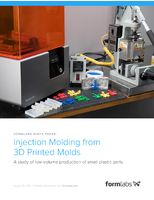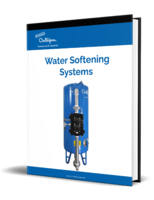Data Analysis Software detects genomic aberrations.
Press Release Summary:
Providing analysis of structural variation from CGH array, SNP array, and NGS platforms, Nexus Copy Number v7 supports small sequence variations, such as point mutations, InDels, and inversions. Sequence variations can be interpreted alongside copy number changes for integrated view of genomic aberrations. This feature allows identification of mutations overlapping copy number aberrations or homozygous regions in addition to identification of novel disease causing mutations.
Original Press Release:
BioDiscovery Releases Nexus Copy Number Version 7 for DNA Copy Number and Sequence Variation Analysis and Visualization
Hawthorne, CA, – BioDiscovery, Inc. a leader in integrated software solutions for genomics data analysis from high-throughput microarray and Next-Gen sequencing technologies, announced today the release of version 7 of Nexus Copy Number software, the leading platform independent and user friendly application for analysis of structural variation from CGH array, SNP array and NGS platforms. Version 7 offers numerous new capabilities including support for small sequence variations, such as point mutations, InDels, inversions, etc. as well as new computational and visualization tools for identifying and displaying significant co-occurring aberrations, and processing samples using ASCAT2. Nexus Copy Number is platform independent and can load virtually any data using its predefined data types or user-created custom data types.
BioDiscovery Nexus Copy Number has enabled users to efficiently detect, visualize, and interpret copy number and allelic event changes across many application areas for several years. With Nexus Copy Number version 7, sequence variations can now be interpreted alongside copy number changes for an integrated view of genomic aberrations. This unique feature of integrated analysis allows identification of mutations overlapping copy number aberrations or homozygous regions in addition to identification of novel disease causing mutations. A new concordance tool allows identification of co-occurring aberrations and many new filtering schemas facilitate quickly narrowing down list of genes implicated in specific types of aberrations.
“With sequencing costs decreasing and widespread use of NGS technologies, researchers have much more sequence variation data at hand and need a way to make sense out of them,” said Dr. Soheil Shams, CEO, BioDiscovery, Inc. “Nexus Copy Number offers a unique composition of analysis and visualization of sequence variations, copy number changes, and allelic event changes together, allowing researchers to advance their findings with a broad picture of the genomic landscape.”
BioDiscovery Nexus Copy Number can integrate and process together, in a single project, data from commercial array platforms such as Agilent, Affymetrix, Illumina, Roche NimbleGen, Next-Gen read depth and small sequence variations, as well as custom arrays. With its free access to a web-based repository for querying and storing genomic data from any location across the globe, BioDiscovery Nexus Copy Number is a powerful solution for large groups such as special consortia. The software is applicable to many types of studies from focused projects of a cytogeneticist to large scale cancer or GWAS studies. BioDiscovery is attuned to such different needs and offers the product in a flexible and modular system allowing users to create configurations that are suited to their needs.
About BioDiscovery, Inc.
BioDiscovery is a leader in the development of breakthrough software and services for advanced copy number variation and expression analysis, enabling customers in drug discovery, research, and diagnostics by efficiently managing, integrating, and analyzing data generated using high-throughput microarray and next-generation sequencing technologies.
BioDiscovery Nexus Copy Number software offers simple yet powerful tools for copy number and sequence variation analysis and visualization from CGH arrays, SNP arrays, as well as next-generation sequencing, for analysis of complex data such as solid tumor samples. The elegant user-interface and powerful statistical tools designed specifically for the end-user allow detection of chromosomal aberrations and identification of affected pathways with just a few mouse clicks.
Contact BioDiscovery: 310-414-8100 or http://www.biodiscovery.com




